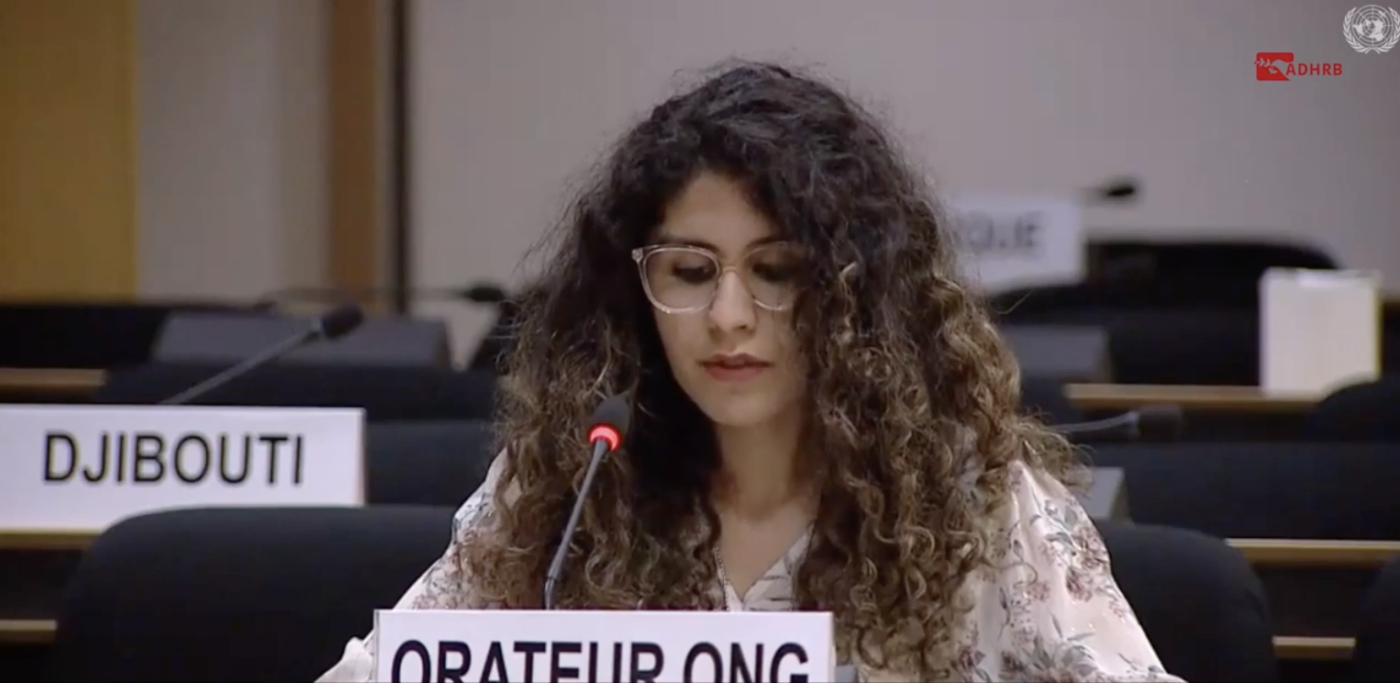On 3 July 2020, ADHRB has delivered an oral intervention at the United Nation Human Rights Council session 44 under item 3 of the general debate, to take action to combat human trafficking in Bahrain and the UAE.
Madam Rapporteur
Thank you very much for your report which addresses a serious problem of trafficking in person, especially women and children. The trafficking problem is an egregious human rights violation, ADHRB has found that many governments around the world deal with this issue from the law enforcement approach, ignoring the human rights violations element. Addressing human trafficking mainly as law enforcement or criminal act and neglecting the underlining human rights violation part is a great disservice to the victims of such abhorrent violations. There is obviously a serious gap between some national legislation dealing with the issue and the international humanitarian law when it comes to human trafficking. In your opinion what efforts can countries take to end this gap and address this crisis comprehensively?
One of the other main prevalent problems that is repeated in many cases of human trafficking is the lack of proper legal and personal protection to the victims of human trafficking. In many cases redress cannot take place because victims lack the proper legal, financial, and emotional support. For example, in Bahrain which became the center of human trafficking in the GCC region, funding has decreased drastically to support victims of human trafficking, resulting in making them an easy target of intimidation and further exploitation. We are also concerned that Bahrain’s large businesses mainly hotels with direct link to the Bahraini Prime Minister and Bahraini King became the hub for human trafficking in the region, especially as a clearing house where victims of human trafficking are sent to other neighboring countries such as the city of Dubai in the UAE. As a member of the Human Rights Council what would your advice be to both, Bahrain and the United Arab Emirates to fight human trafficking in their countries? How countries like Bahrain can seek international assistance to combat human trafficking?





